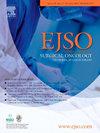Network meta-analysis of RTCs for efficacy of neoadjuvant treatment in rectal cancer
IF 3.5
2区 医学
Q2 ONCOLOGY
引用次数: 0
Abstract
Background
This network meta-analysis examined the efficacy of different types of neoadjuvant therapy (NAT) for rectal cancer in improving clinical and pathologic outcomes.
Methods
PRISMA-compliant systematic review of PubMed and Scopus including only randomized clinical trials comparing two or more NAT regimens for rectal cancer. A network meta-analysis was undertaken for the main outcomes, including pathological complete response (pCR), disease downstaging, R0 resection, permanent stoma, and major adverse effects. Risk of bias was assessed using the ROB-2 tool.
Results
19 randomized controlled trials incorporating 7037 patients (62 % males) were included in the analysis. Compared to standard neoadjuvant chemoradiation (NCRT), consolidation total neoadjuvant therapy (TNT) (OR: 1.82, 95 % CI: 1.46–2.27; p < 0.001) and induction TNT (OR: 1.72, 95 % CI: 1.31–2.26; p < 0.001) had higher odds of achieving pCR. Induction TNT was also significantly associated with higher odds of major adverse effects than was NCRT (OR: 3.14, 95 % CI: 2.50–3.94; p < 0.0001). Compared to NCRT, long course chemotherapy significantly increased the odds of R0 resection (OR: 1.42, 95 % CI: 1.13–1.78; p = 0.002), while consolidation TNT significantly increased organ preservation rates (OR: 2.82, 95 % CI: 1.58–5.05; p < 0.001). Short course radiotherapy doubled the odds of positive circumferential resection margins (CRM) compared to NCRT (OR: 1.99, 95 % CI: 1.11–3.55; p = 0.02).
Conclusions
Consolidation and induction TNT were superior in achieving better pathological outcomes in rectal cancer, offering significant benefits over standard NCRT. However, they were associated with a higher risk of adverse effects. Conversely, short course radiotherapy was linked to higher rates of positive CRM.
rtc对直肠癌新辅助治疗疗效的网络meta分析
本网络荟萃分析探讨了不同类型的直肠癌新辅助治疗(NAT)在改善临床和病理预后方面的疗效。方法对PubMed和Scopus进行的符合sprima标准的系统评价,仅包括比较两种或两种以上NAT治疗直肠癌方案的随机临床试验。对主要结果进行了网络荟萃分析,包括病理完全缓解(pCR)、疾病分期降低、R0切除术、永久性造口和主要不良反应。使用rob2工具评估偏倚风险。结果19项随机对照试验纳入7037例患者(62%为男性)。与标准新辅助放化疗(NCRT)相比,巩固总新辅助治疗(TNT) (OR: 1.82, 95% CI: 1.46-2.27;p & lt;0.001)和诱导TNT (OR: 1.72, 95% CI: 1.31-2.26;p & lt;0.001)获得pCR的几率更高。诱导TNT组的主要不良反应发生率也显著高于NCRT组(OR: 3.14, 95% CI: 2.50-3.94;p & lt;0.0001)。与NCRT相比,长疗程化疗显著增加R0切除的几率(OR: 1.42, 95% CI: 1.13-1.78;p = 0.002),而固结TNT显著提高了器官保存率(OR: 2.82, 95% CI: 1.58-5.05;p & lt;0.001)。与NCRT相比,短期放疗使周切缘(CRM)阳性的几率增加了一倍(OR: 1.99, 95% CI: 1.11-3.55;p = 0.02)。结论巩固型和诱导型TNT治疗直肠癌的病理结果优于标准型NCRT。然而,它们与较高的不良反应风险相关。相反,短期放疗与较高的CRM阳性率有关。
本文章由计算机程序翻译,如有差异,请以英文原文为准。
求助全文
约1分钟内获得全文
求助全文
来源期刊

Ejso
医学-外科
CiteScore
6.40
自引率
2.60%
发文量
1148
审稿时长
41 days
期刊介绍:
JSO - European Journal of Surgical Oncology ("the Journal of Cancer Surgery") is the Official Journal of the European Society of Surgical Oncology and BASO ~ the Association for Cancer Surgery.
The EJSO aims to advance surgical oncology research and practice through the publication of original research articles, review articles, editorials, debates and correspondence.
 求助内容:
求助内容: 应助结果提醒方式:
应助结果提醒方式:


